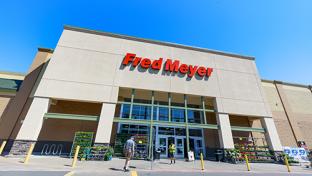Kroger Investors Vote for Racial, Gender Pay Equity Proposal at Annual Meeting

A 51% majority of Kroger’s shareholders approved a shareholder proposal asking the company to transparently report on racial and gender pay gaps. Brought by investment management firm Arjuna Capital and co-filer Proxy Impact, with backing from union local UFCW 3000, which covers more than 12,000 Kroger workers in the Pacific Northwest,the proposal was presented during Kroger’s June 22 virtual annual meeting by Sam Dancy, who works at a QFC store in West Seattle, Wash., and is a UFCW 3000 board member.
“As a Black man growing up in America I experienced slurs, prejudices, and racism from an early age,” noted Dancy in his presentation. “And unfortunately, I have reason to think that this racism has pervaded the culture at Kroger, too. I believe Kroger needs to resolve pay inequities connected to race and gender. While my opinion is based on decades of experience mostly at a single store, Proposal 8 seeks transparency, so the issue is addressed company-wide.”
[Read More: “UNFI Helping to Address Historic Inequity to Black Farmers”]
Dancy was also one of the UFCW 3000 members who testified in UFCW’s successful case regarding workers’ right to wear Black Lives Matter buttons while working at Fred Meyer and QFC stores.
Kroger CEO Rodney McMullen condemned the discrimination that Dancy has experienced at the company but didn’t make a commitment to fulfill the request of the proposal. While McMullen pointed out that Kroger has been conducting internal pay equity analyses since 2016, the company has not publicly published these analyses. He also observed that many Kroger employees operate under collective bargaining agreements, to which UFCW 3000 responded that it would welcome the opportunity to improve the standards codified in its collective agreements with Kroger to address pay inequities.
Last year, a report by the Economic Roundtable found that African American, Latinx and Native American workers at Kroger experience greater economic insecurity than Kroger employees who are white.
“Kroger is in need of greater accountability on racial and gender pay equity and investors made that message clear to the board,” said Julia Cedarholm, senior associate at Manchester-by-the-Sea, Mass.-based Arjuna Capital, a sustainable investment firm that works with accredited investors and institutions to invest their assets integrating environmental, social and governance risks and opportunities. “Transparent reporting of pay equity builds trust with investors and employees, and ensures the company is managing its internal pay equity and achieving its diversity and inclusion goals.”
When contacted by Progressive Grocer, a Kroger spokesperson responded: “We would like to thank our shareholders for their engagement and feedback during this proxy season. The board will review final voting results and make further disclosures as appropriate.”
Serving 11 million-plus customers daily through digital shopping and retail food stores under a variety of banner names, Cincinnati-based Kroger is No. 4 on The PG 100, Progressive Grocer’s 2023 list of the top food and consumables retailers in North America. PG also named the company one of its Retailers of the Century.







